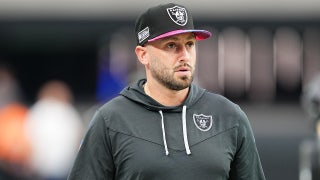By Larry Fine
NEW YORK (Reuters) - Ryan Braun's 50-game ban for a positive drug test was reversed over procedural mistakes but the Milwaukee Brewers slugger and Major League Baseball (MLB) may not be done battling.
A legal joust could ensue with MLB seeking to defend its drug-testing program and uphold the integrity of the game, while the reigning National League Most Valuable Player continues a quest to demonstrate his absolute innocence of wrongdoing.
One day after an arbitrator ruled in favor of Braun's appeal and MLB said it "vehemently disagrees with the decision," Braun suggested the testing process was "fatally flawed" and that he was keeping his legal options open.
One prominent crisis management lawyer, who has represented many high-profile athletes, said he did not think either side could win a judgment.
"Braun seems to be suggesting he is considering a lawsuit. I'm not sure that's a viable option," William Moran, a partner in the New York office of McCarter & English, told Reuters.
"If anyone has a legal option to pursue it's probably MLB to try and overturn the arbitrator's award, although that's not easy to do ... I think Braun probably would just be better served to not look a gift horse in the mouth."
Doping officials were aghast at the arbitrator's ruling and hoped the reversal would not tarnish the standing of MLB's testing program, widely considered to be the best among North America's four major professional sports leagues.
World Anti-Doping Agency (WADA) director general David Howman told Reuters in a recent interview that MLB has made the most progress on the doping front when compared to the National Football League, National Basketball Association and National Hockey League.
'DISAPPOINTING OUTCOME'
United States Anti-Doping Agency chief Travis Tygart said he felt sorry for MLB's "clean" athletes.
"It's a disappointing outcome for all the clean athletes in baseball, who meticulously abide by the rules, check their medications and their supplements," he told Reuters on Friday.
"Despite all the pressures to cheat with drugs, to be the home run king or an MVP, it seems like their voices weren't heard at this arbitration procedure."
Both MLB and the Players Association issued statements on Friday stressing their faith in the drug-testing program and saying some elements in the process would be clarified as a result of the Braun case.
Braun said his urine sample was not delivered promptly to the drug testing lab and instead was held by the courier for some 44 hours before shipping.
"There were a lot of things that we learned about the collector, about the collection process, about the way the entire thing worked that made us concerned and very suspicious about what could have actually happened," Braun said at a news conference at the Brewers spring training camp in Arizona.
Doping expert Gary Wadler, a professor of medicine at the Hofstra Medical School and former high-level WADA official, said Braun was free and clear on a technicality.
"That does not explain the findings," Wadler said about the elevated levels of both natural and synthetic testerone found in the sample." said Wadler. "His argument does not explain the science of the findings."
LESSON LEARNED
According to Moran, the disruption of the chain of evidence is often seen as a mitigating factor in judgments.
"It's much like a cop on the street, rather than taking the bag of drugs from a narcotics seller right to the precinct and sending it off to the lab, he takes it home and puts it in his garage for a couple of days," Moran said.
"Clearly a chain of custody is broken there and I can see a judge throwing that out. That's sort of along the lines of what this arbitrator did."
Tygart said he hoped a lesson would be learned.
"It's a clear gut kick to all the players not falling into the temptation ... on some frivolous basis the legal process let them down and that is a hard thing to face when you are clawing and scratching to make it," he said.
"Hopefully the union and the league can step back from this and the clean players can take a look at it and say, 'we need to make sure the legal process also is fair and is a level playing field to all athletes as well.'"
Wadler said he hoped the Braun incident would not give baseball's dope testing initiative a black eye.
"I hope that this does not derail the progress of Major League Baseball," Wadler said. "We should not take our eye off the ball."
(Reporting By Larry Fine in New York; Additional reporting by Steve Keating in Toronto; Editing by Frank Pingue)








































